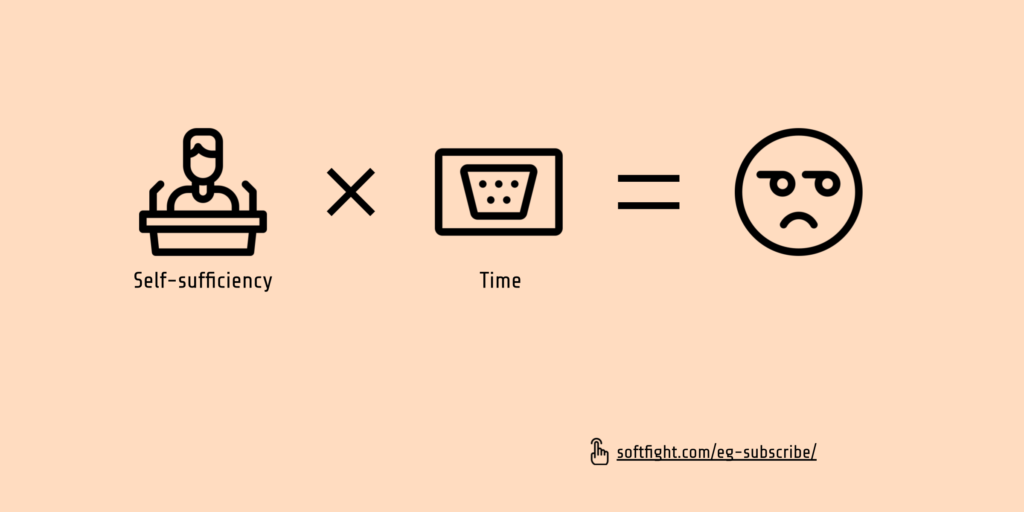As with many things in life, when it comes to setting prices for Software Services, there are a few good ways to reach an optimum result and thousands of ways to get it wrong.

Price Takers in Software Companies
Many software development companies are being managed by some of the people that were part of the initial founding team or by managers promoted from within.
The consequence of this when it comes to the price management process is a very high variability between the methods employed to set the prices (their rate cards) and in the ways these prices are presented to potential customers and negotiated in contracts.
This is happening because they have not seen how other companies are setting prices, the limited availability of learning resources on this topic and, in too many cases, because they have not made the effort to look for another way.
Unfortunately for all these companies, a large majority of these custom, unique methods is sub-optimal.
If we were to simplify a lot, we can split people setting prices for Software Services in 2 categories: Price Takers and Price Makers.
The Price Takers are the entrepreneurs and managers who believe that they have little to no control over the prices they are charging.
They are convinced that their energy and efforts should be directed towards managing or improving other parts of their business: recruiting, finding customers, team management, technologies they are working with, knowledge sharing and so on.
In the minds of Price Takers, the prices they should be charging are set by two forces: the market and the salaries they pay to employees.
Ah, “the market”
A lot of them believe that the technology they are working with (Java, .NET, Javascript, Mobile, etc.) and their geographic location (Eastern Europe, India, South America, USA or Western Europe) is the main factor that determines the price they can ask.
So they look around, usually to other companies in the same region, and set their prices in that very narrow interval that results from this exercise.
Or they align their prices with the levels expected by the prospective customers they interact with.
What about the salaries?
Another category is that of managers who are convinced their prices are a direct result of their costs (mostly with salaries and taxes), to which they are adding a fixed margin.
They just cannot imagine any other way of setting their rate cards. I’ve seen this so many times, it’s almost painful to talk about it. In many cases, this results in a fundamentally flawed business model, with a constant pressure to reduce costs, which typically means one of two things.
Either hiring people that don’t have enough experience or skills for the level of quality they are supposed to deliver.
Or starting with the right team, but over time, as prices tend to remain fixed over multiple years, but salaries increase, a need to cut corners on everything else: team management, learning, tools, improvement processes and so on.
In both cases, a lot of times the result is sub-par quality, which leads to client dissatisfaction, lost projects and all the negative consequences that come from this.
What is a Price Maker?
In short, it’s a manager who believes that price is just another variable they need to manage.
I would argue that it’s the most important variable they have to manage, given the leverage it affords.
What is important is that a Price Maker is willing to make the effort to understand how prices are formed, to look for information, data, best practices on how to optimally set, present and negotiate prices.
Then use this knowledge to optimise their price management process and as a result, their profitability.
Price Makers do not accept that outside forces are setting the prices for the services they are selling.
They are proactively managing their customer targeting, the types of services they are offering, the types and level of expertise of people they are hiring, the quality they are delivering, as to arrive at an optimum result, which translates into healthy, sustainable margins for their business.
So what?
Software Services is a competitive industry.
There are many suppliers, at all quality levels and prices, and the pressure to compete on price is sometimes overpowering.
It takes a strong motivation, discipline and even courage to do things in a different way, even when you are convinced that is the best way for you as a supplier, for your customer and for the team.
I have also seen arguments that the bigger the company is, the easier it is to act as a Price Maker and that small and medium-sized businesses have no choice but to act as a Price Taker.
My experience is that this is plain wrong.
The degree of control you have over the rates you are charging have nothing to do with the size of the company and everything to do with the choices you make as a manager.
There are probably hundreds of different steps and actions that you can take to manage your prices setting process.
Whether one is a Price Taker or Price Maker is, in the end, a matter of personal choice and preference.

